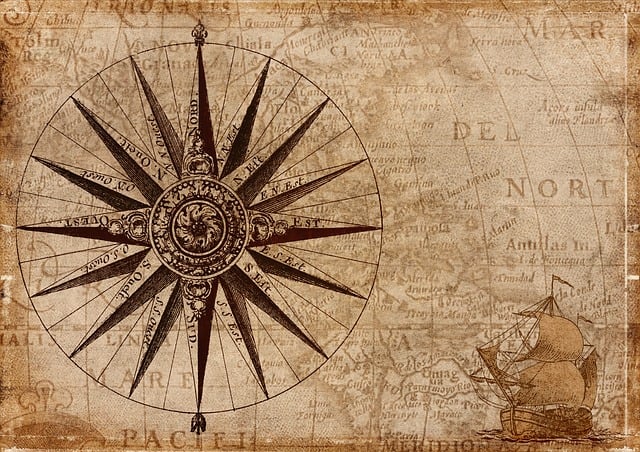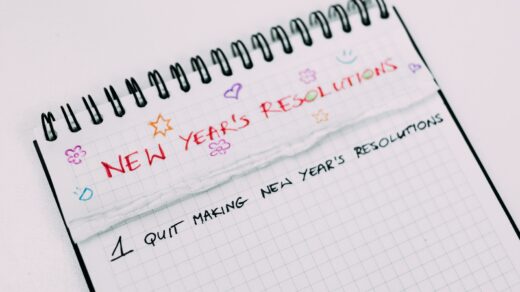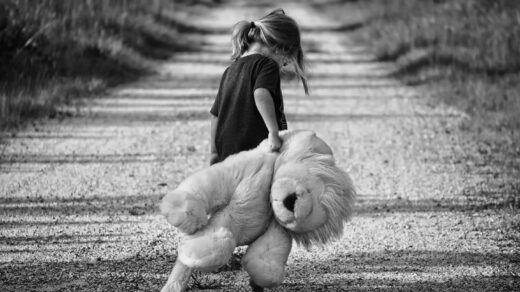People say it all the time…it’s basically a variation on the theme that, today, everything’s falling apart and society is going insane. We hear it from neighbors and politicians, friends, co-workers, tv shows, direct advertising and just about any other method through which messages are provided. Some people deliberately feed the overwhelming sense of fear, the rest of us just become the echo chamber and unknowingly buy into the rhetoric. Our imaginations take over where the verbal messages leave off, convincing us that our safety is in immediate and imminent danger. Then, those who are older, start waxing nostalgic about the ‘good ol days’ and how things were simpler and better, saying people had better values and morals.
None of this is true.
First, our brains are designed to color our memories. To test this out, remember an event from your past which was shared with someone you are still connected to, perhaps a sibling or best friend. Think of something which was several years ago and, if possible, something which you might not have photographs of (in today’s world, everyone has a camera phone). Have a conversation about your memory of that event with them and then ask them about their memories. Chances are, they will have a slightly different view and may not remember something you did or vice versa. In addition, we sometimes color our memories with a tint of rose because it allows us to move forward with our lives without absorbing all the harsh realities associated with being a human on planet earth.
Add to that the reality that, yes, of course things were simpler when we were younger, but in a different way. When we were kids, if we had good enough parents, we didn’t have to worry about paying the mortgage or gassing up the car. We didn’t have to make supper or wonder if we were about to get sacked at our job. Even as young adults we probably lived in small apartments without having to be concerned if the roof leaked and how to fix it. We likely didn’t have children of our own to guide and care for. We were also probably naïve about others’ personality disorders and how they affect us and we weren’t necessarily overly concerned about the world-wide ramifications of unrest in the Middle East (current college campuses excepted).
As we age, we take on more responsibility and knowledge. Our rose-colored view of the world clears slowly due to our combined experiences and we become disappointed with our fellow human beings. Of course it’s natural to want to return to a moment in our lives where those feelings of disappointment and weariness weren’t regular visitors in our minds. Yet, every generation believes when they were younger, society was better. This might be a time to remind people of a few things which were true of our past. Women couldn’t vote, have their own bank accounts, hold certain jobs. Anyone of a race or ethnicity other than white was typically persecuted in some way, segregated, bullied or harassed and also typically didn’t have access to certain schools or activities. Anyone who questioned their sexuality could be jailed. Things were NOT better in our past, it can’t be when people are repressed in so many ways.
I was recently reminded of this when I stumbled onto “The Century: America’s Time – 1920-1929: Boom To Bust”. A documentary series produced by ABC News. I recently watched this episode online and was appreciative of the commentary about such an interesting decade in America’s history. It was produced long enough ago that several interviews with people who were alive during the twenties were included. As it was one hundred years ago, I’ve no doubt that, today, we have lost everyone who could give us a first-hand account of wonder of The Roaring Twenties.
What struck me was the timing. First, 1920 arrived immediately after the most devastating war the world had ever experienced up to that point in time. The world had also experienced a global flu pandemic which claimed the lives of millions of people and caused dissent between people and the voices of health and science. They didn’t ask for it, but in the span of a few years, the world jumped forward in leaps and bounds, forcing people out of their comfort zones. But with this came advancements which helped make life a little easier. Electricity was more wide-spread, cars were now affordable for everyone, radio was invented and connected people in a way they hadn’t been before only to be complimented with the advent of movies. White men were no longer the sole voice in governing when women finally won the right to vote, which coincided with shortened hemlines, shortened hairstyles and bare arms.
It was a time of, what we might now call, disruption. The status quo was heavily challenged and people were divided. There were those who embraced or encouraged change and those who were comfortable with how they had been living for years who saw the modernization as the start of the downfall of humanity, destined to spiral into a depraved and wanton world where scarcity of resources would be the daily struggle.
I’m no great poet, but the writer(s) of this series seemed to be. The following quotes provided me with clarity about our society.
“It was one thing to replace the family mule with a Model T but quite another to trade Matthew, Mark and John for Einstein, Freud, and Darwin. For many people, these were confusing times. And what may have been the most unsettling about the pace of change in the 1920s was that people really wanted both the benefits of the future and the familiar comforts of the past.” – Peter Jennings
“They want the fruits of modernity. They want automobiles, electricity, radios. And at the same time they want it to remain 1850 and they know they cannot have both. And this creates a psychological tension within American society that is then looking for somewhere to go. And it goes into hatred towards immigrants, hatred towards people who are simply different. It goes to intolerance.” (The second quote is from an interviewee in the program, but his name was not provided while he was speaking.)
I cannot think of two statements which best describe the last several years and current times in which we live…one hundred years after the decade these words were describing. The original air date of this program was 1999, which means it’s been twenty-five years since those words were written. The passage of time doesn’t diminish their truth or impact on me.
I love simpler things. I dislike technology. It moves so fast that I’m left feeling stupid about not knowing how to find a file on my computer or phone or tablet. Just when I have a software figured out, the creator gets bored with the interface and “updates” it, throwing me a curve ball I must figure out. The pace of technological advancements will not be slowing down, so I’ve started to create a type of peace within me by acknowledging that I will not be able to keep up, mostly because I find it draining and uninteresting. I prefer to read, listen to music, go for a hike with my friends, create a planting plan for my backyard, and just about anything else.
The world is changing, fast. It’s been doing that for centuries and will continue to do so long after I’m not here. The best I can do is to understand that we do not live in a time on the precipice of demise, unless it means that we’ve been living on the precipice of demise for centuries. The actual changes might be different now than one hundred years ago. Back then, they acclimated to the invention of automobiles, today we acclimate to the invention of self-driving automobiles. Both instill trepidation and wonder in just about all of us.
These changes cause us to be worried, anxious, scared or a host of other feelings we’re not sure we can identify. It’s an unfortunate reality in us humans that we counteract these unsettling feelings by pointing a finger at someone different from us and saying it’s all their fault that we feel this way. This is not new. Wars have been fought over religious beliefs, people have been targeted and enslaved in a myriad of ways based on their skin color, genocides have been carried out based on personal values and beliefs. Today we watch as Israel and Palestine continue a long-standing grudge of blaming and targeting one another, feelings which spill out into other countries and ignite passions related to human dignities and fairness, which, in turn, result in protests, injuries and arrests.
The basis of all our unsettled feelings usually isn’t due to anyone else (we’ll save conversations about Hitler for another day). The basis of our unsettled feelings lies within us and the fragility (and beauty) of the human soul. We pretend we have it all together and award those who project that general image. We encourage one another to ‘dust yourself off’ and ‘carry on’ when perhaps we should pause for a few moments and just realize we’re feeling unsettled but we can still move forward in a kind and wonderful way despite those feelings.
A lot of people don’t like history. I’m not one of those. The older I get, the more I want to learn about our past and, the more I learn, the more I understand the steps that were taken which have landed us right where we currently are. These are not unusual times, our ancestors have been through them before. If we heed the voices of reason and become curious about our own feelings, then we too will navigate the currents successfully.



